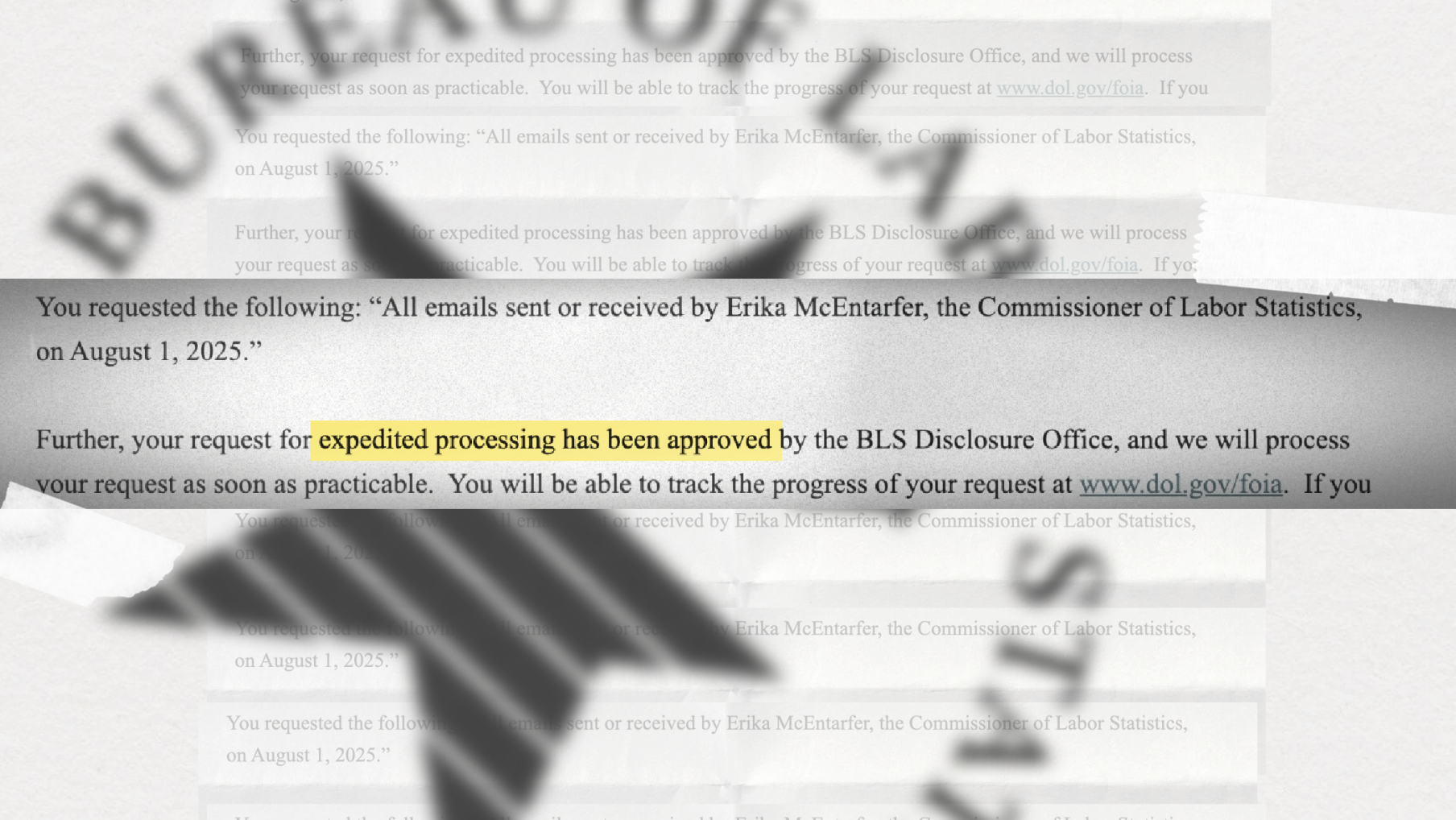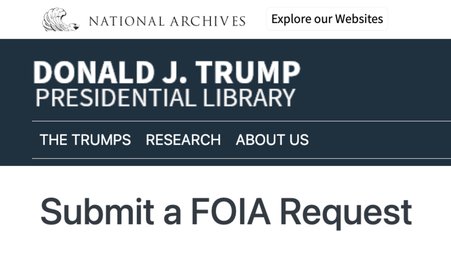Dear Friend of Press Freedom,
I’m Lauren Harper, the first Daniel Ellsberg chair on government secrecy at Freedom of the Press Foundation (FPF), and welcome to “The Classifieds.” Read on to learn about this week’s top secrecy news.
Fighting secrecy, one FOIA at a time
I filed ten Freedom of Information Act requests this week, including:
- A request to the Bureau of Labor Statistics for all emails sent or received by ousted agency head Erika McEntarfer on her last day of work. (BLS granted my request for expedited processing).
- Requests to both the Secret Service and the Army Corps of Engineers about their joint efforts to raise the water level of a lake in Ohio to accommodate Vice President J.D. Vance’s recent kayaking trip.
- A request to Customs and Border Protection for documents concerning agents’ use of smart glasses, including Ray-Ban’s Meta AI glasses, during immigration raids. This request was prompted by 404 Media’s recent report that an agent at a June immigration raid outside of a Home Depot in Los Angeles was seen wearing the Ray-Ban Meta AI glasses.
I’ll keep you posted on the status of these requests. And if you are a FOIA lawyer interested in helping us litigate to get these and other documents released more quickly, you can contact me at [email protected].
More records from committee that exposed COINTELPRO and MKULTRA may soon be public
The Church Committee of 1975 was Congress’ first serious investigation of the CIA’s illegal activities. It was spurred by a December 22, 1974, New York Times article by Seymour Hersh revealing that the agency had broken the law by, among other things, spying on Americans and monitoring their political activity.
The committee worked for a year to uncover a number of abuses, including:
- The CIA’s mind control research program, MKULTRA, which involved drugging unwitting Americans and monitoring their reactions to a variety of drugs, including LSD.
- The FBI’s COINTELPRO, which spied on civil rights and anti-war activists, among other FBI-deemed dissidents.
- The National Security Agency’s Project MINARET, in which the agency colluded with telecommunications providers to spy on prominent Americans, including members of the Church Committee. (Unfortunately, none of these revelations stopped the CIA from spying on Senate staff investigating the agency’s torture program several decades later.)
While the public learned much from the Church Committee, some of its own records are still secret. But that may soon change thanks to a Senate resolution stipulating that some committee records be made public after 50 years.
A short provision in the Senate Intelligence Committee’s recent Intelligence Authorization Act compels the CIA director to “prepare for and expedite the required declassification in 2026 of the Church Committee archival files that meet the requirements.”
It remains to be seen what committee records are still hidden, but hopefully CIA director John Ratcliffe is as eager to declassify intelligence records as his colleague, director of national intelligence Tulsi Gabbard.
What I'm Reading
Home Depot and Lowe's share data from hundreds of AI cameras with cops
Electronic Frontier Foundation filed a public records request with a Texas sheriff’s office that revealed Home Depot and Lowe’s are sharing data from their automated license plate readers with local law enforcement. The records show that the sheriff’s office has access to parking lot cameras at more than 170 Lowe’s locations and can tap into microphones at dozens of Home Depots — all without customers’ knowledge. 404 Media made their article about the creeping surveillance free thanks to their commitment to dropping paywalls for public records-based reporting. Other news outlets should follow suit.
The FBI redacted Trump’s name in the Epstein files
A FOIA request filed by Jason Leopold revealed that the FBI’s FOIA office redacted President Donald Trump’s name, as well as names of other prominent individuals, from the Epstein files. Even though Trump is a public figure whose ties to Jeffrey Epstein have been widely reported, the bureau dubiously claimed the redactions were necessary to protect Trump’s privacy.
The atomic bombings of Japan and the end of World War II, 80 years later
The National Security Archive, a nonprofit research organization in Washington, D.C., where I used to work, commemorated the 80th anniversary of the U.S. dropping atomic bombs on Hiroshima and Nagasaki by updating their collection of declassified documents on the event. Newly published records include background material on the creation of the Manhattan Project and documents on plans to deliver the bombs to their targets.
Transparently yours,
Lauren Harper
Daniel Ellsberg Chair on Government Secrecy
Freedom of the Press Foundation





